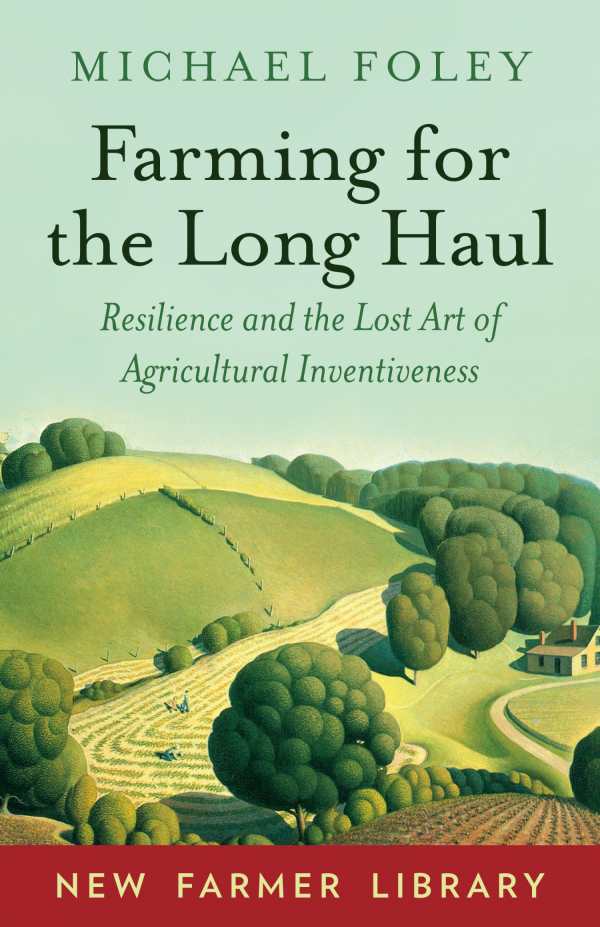Farming for the Long Haul
Resilience and the Lost Art of Agricultural Inventiveness
Michael Foley is the ideal author for a book about the future of farming: He operates a small family farm and knows what it means to work the land. He also knows the perils that small farmers face. Foley writes with eloquence and reason, pointing to studies that indicate small farms “can be far more productive than big ones,” and more profitable as well. Yet agricultural giants dominate the farming business while small farmers suffer.
Farming for the Long Haul is a valuable historical and societal perspective on farming in the United States and internationally. It tells the story of the small farmer through the eyes of a farmer, and is supplemented with stories of other farmers. Foley’s observations are insightful and at times startling: “In the United States it is estimated that 70 percent of farmland is in the hands of farmers age sixty-five and older. That four hundred million acres will change hands soon, but how? And to whom?”
In some respects, this book paints a bleak picture of farming’s future. Climate change and the degradation of soil have hampered food productivity, the costs of farming are rising, and small farmers are being “forced to occupy marginal lands.” Foley believes nothing less than “a profound reversal of course” will be necessary for farming to survive long-term. Still, the book is grounded in cautious optimism—based primarily on local farmers helping themselves. Food hubs controlled by farmers, urban farming, and grassroots organizations run by farmers are hopeful evidence.
Foley concludes his excellent book with the belief that traditional agriculture “is here to stay,” and that “it will sustain humanity, provided we take its many lessons to heart.” One can only hope the prediction is accurate.
Reviewed by
Barry Silverstein
Disclosure: This article is not an endorsement, but a review. The publisher of this book provided free copies of the book to have their book reviewed by a professional reviewer. No fee was paid by the publisher for this review. Foreword Reviews only recommends books that we love. Foreword Magazine, Inc. is disclosing this in accordance with the Federal Trade Commission’s 16 CFR, Part 255.

